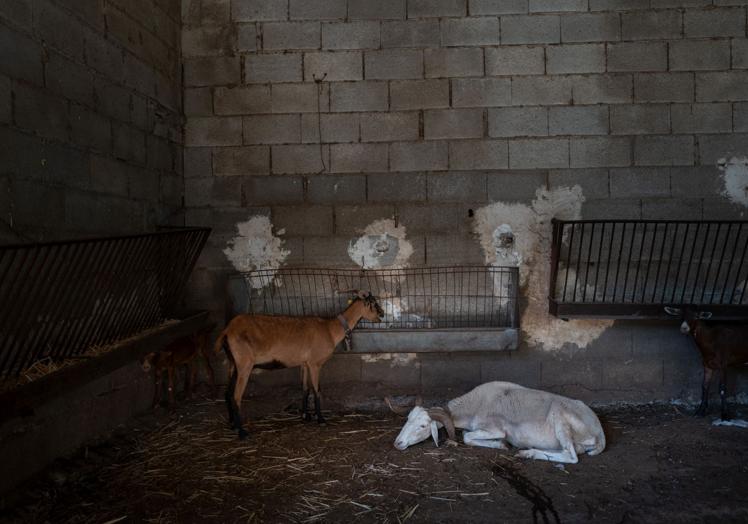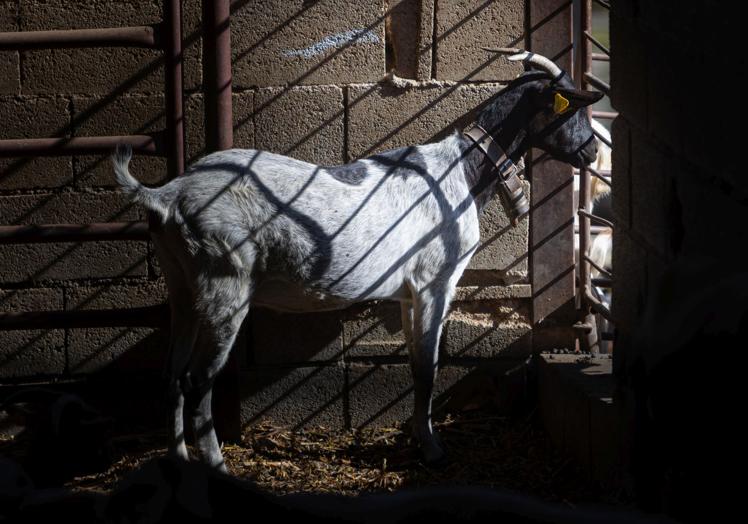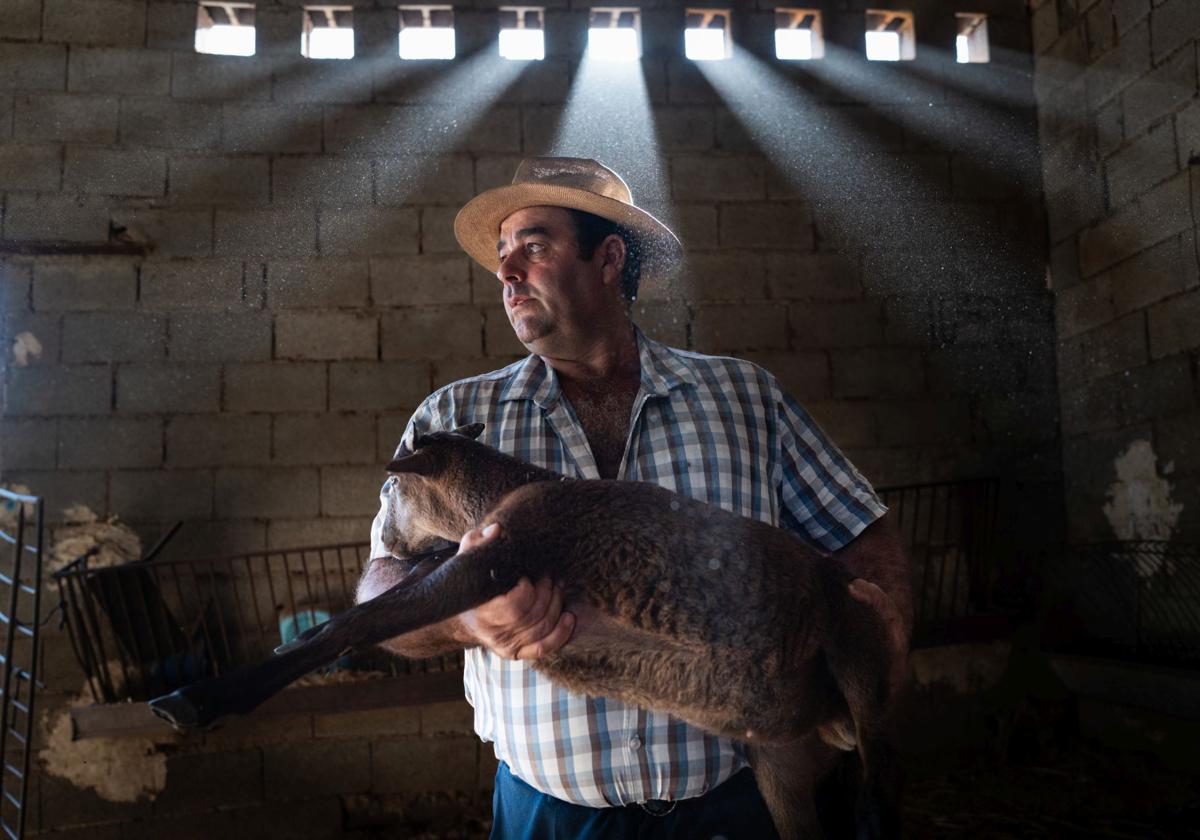Sara Bárcena Hernández
Granada
Monday, 1 September 2025, 17:28
Bluetongue disease is showing no mercy to livestock farmers in Granada province in Spain’s Andalucía region this year. On one of the first farms where the outbreak was detected in the province, located in Órgiva, which warned of possible symptoms back in July, this infectious disease transmitted by mosquitoes has affected 80% of the livestock, which numbers around 650 animals.
Ten animals have already died – eight sheep and two goats. Experts have already warned that serotype 03 is the most lethal and in Granada province it is already present in at least 28 herds, three of which have been officially confirmed.
Bluetongue has affected 80% of the livestock on the farm in Órgiva where the first outbreak was confirmed.
Pepe Marín

The results of the analyses carried out by the veterinarians of the regional agricultural office (OCA) of the Junta de Andalucía regional government revealed the first outbreak of bluetongue on the same farm in Órgiva, located in Los Tablones, around two weeks ago. SUR’s sister newspaper Ideal visited the farm on Thursday 28 August to see first-hand the situation that has affected farmers including Oliberto Romero, who has more than 400 sheep and 200 goats as well as chickens.
“When they are sick, you can tell very quickly. Their temperature rises so high that they fall, they can’t walk and they can’t drink water because their tongues swell up”
Behind the first fence, dozens of sheep are walking and bumping into each other. One of them is visibly ill. “Even the wool is changing from the fever, even the hooves. When they’re sick you can tell very quickly. Their temperature rises so high that they fall, they can’t walk and they can’t drink water because their tongues swell up. It’s a disease that attacks the lungs. Many of them suffocate and even abort,” explains Oliberto, who has been doing the job for thirty years.
But he says, “the worst is over”. For a month, there were new sick sheep every day. “Twenty or thirty that the night before were eating grass as if nothing had happened, the next day they would wake up swollen and lying on the ground,” he says. Beyond the 10 dead animals, “which at the end of the day is 100 euros per animal, about 1,000 euros in total”, what worries him most is that there may be 100 that have aborted. “It’s a ruin, between the dead and the miscarriages there is no business”.
“Whoever is here is because they like it, it’s like a drug, not just a business. The problem is that we are alone, that the authorities don’t help us”
He sells exclusively lamb and goat, kid, but now he can’t do so. The vets insist that the disease is not contagious and does not affect the final product, “but for the moment we are restricted” Oliberto says. He adds that it is impossible to put an “estimate” on the financial losses and says, “Whoever is here is because they like it, it’s like a drug, not just a business. The real problem is that we are alone, that the administration does not help us. They tell us to vaccinate against serotypes 03 and 08 – our herd is vaccinated against 01 and 04 – but they don’t provide the means,” he says.
Almegíjar also affected
A second outbreak of bluetongue has been confirmed in Almegíjar, near Torvizcón, also in the Alpujarra. There, veterinarians from the OCA of Órgiva predict the “worst prognosis”. The farm is run by José Miguel García, who has been a livestock farmer for 40 years and has 350 animals. In this outbreak, 34 animals have died, “but I’ve been through it before”, García says, who is convinced that the enclave where he is located is “prone” to the reproduction of the Culicoides mosquito.
Although the disease mainly affects sheep, goats have also had symptoms.
Pepe Marín

“2007 was the first time there were symptoms here. I didn’t know it then, I put it down to autumn. Two years ago, in November, the second time. But I just vaccinated the ill sheep and the disease stopped. It was serotypes 01 and 04,” he recalls. Now, 03 is attacking and it is proving “fatal”.
While Oliberto says that “there is no estimate”, José Miguel calculates, “roughly speaking”, 12,000 euros lost
From his farm in Almegíjar José Miguel sells lamb and lamb of “very good” quality. With bluetongue, between 35 and 40 animals have died and now there are another 10 “weaker” ones. “The animals are having a hard time and so am I. I have the sheep because I like to keep them. If they abort, you spend a year working for nothing. It could be 10,000 or 12,000 euros lost, roughly speaking,” he says. He also hopes that there will be help. There should be, he insists. “Bluetongue hits hard those of us who are unlucky enough”.
